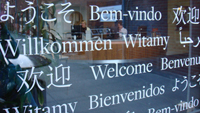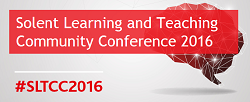
Ab initio language courses for new Modern Languages students
New Modern Languages students may be interested in our accelerated ab initio language courses in French, German, Italian, Portuguese and Spanish which, assuming you start in year 1 and continue throughout your degree, may allow you to reach graduate level by the end of your degree course in your new language.
On some of our BA degree programmes, doing this will give you the opportunity to spend your year abroad in the country where this new language is spoken.
Continue reading →








